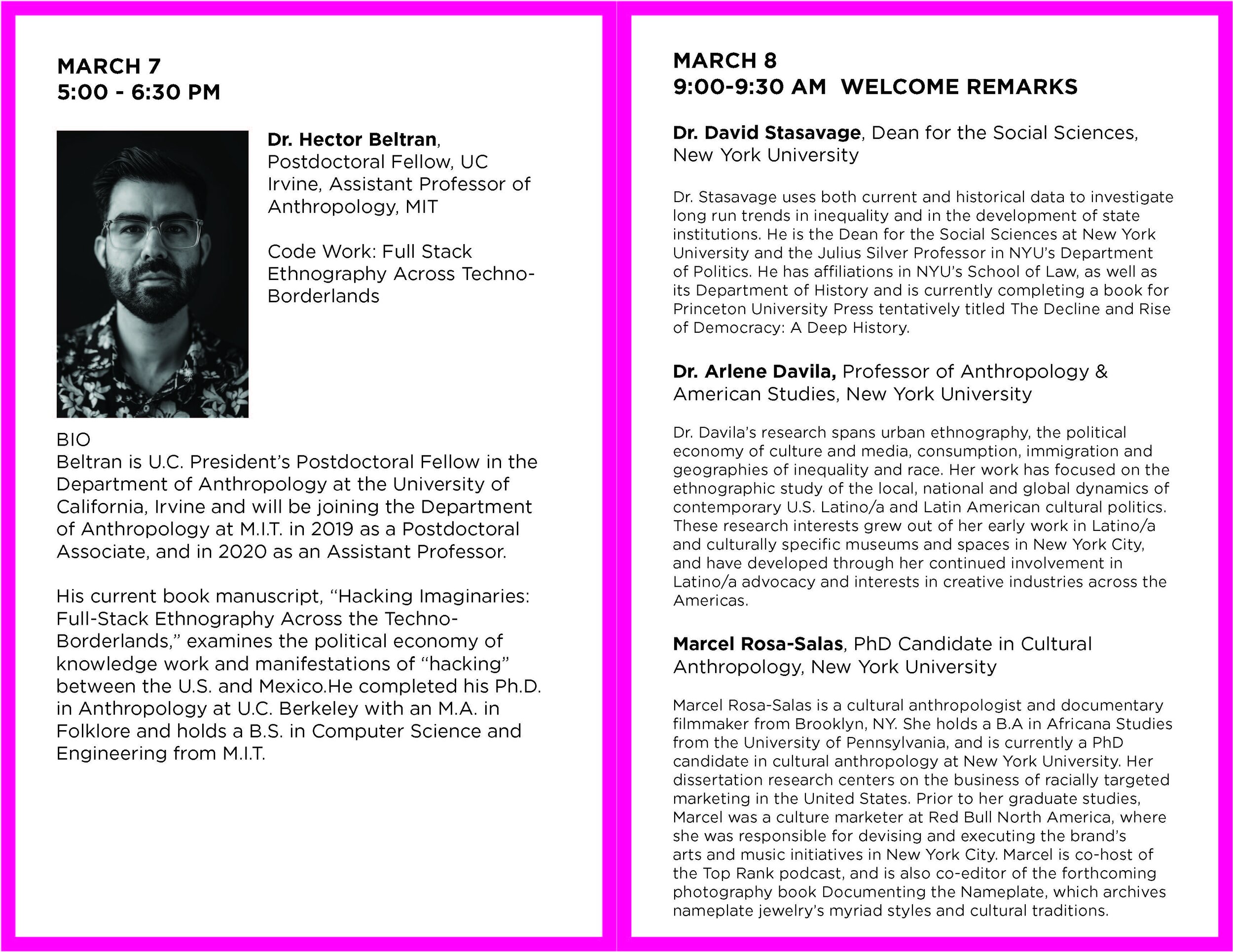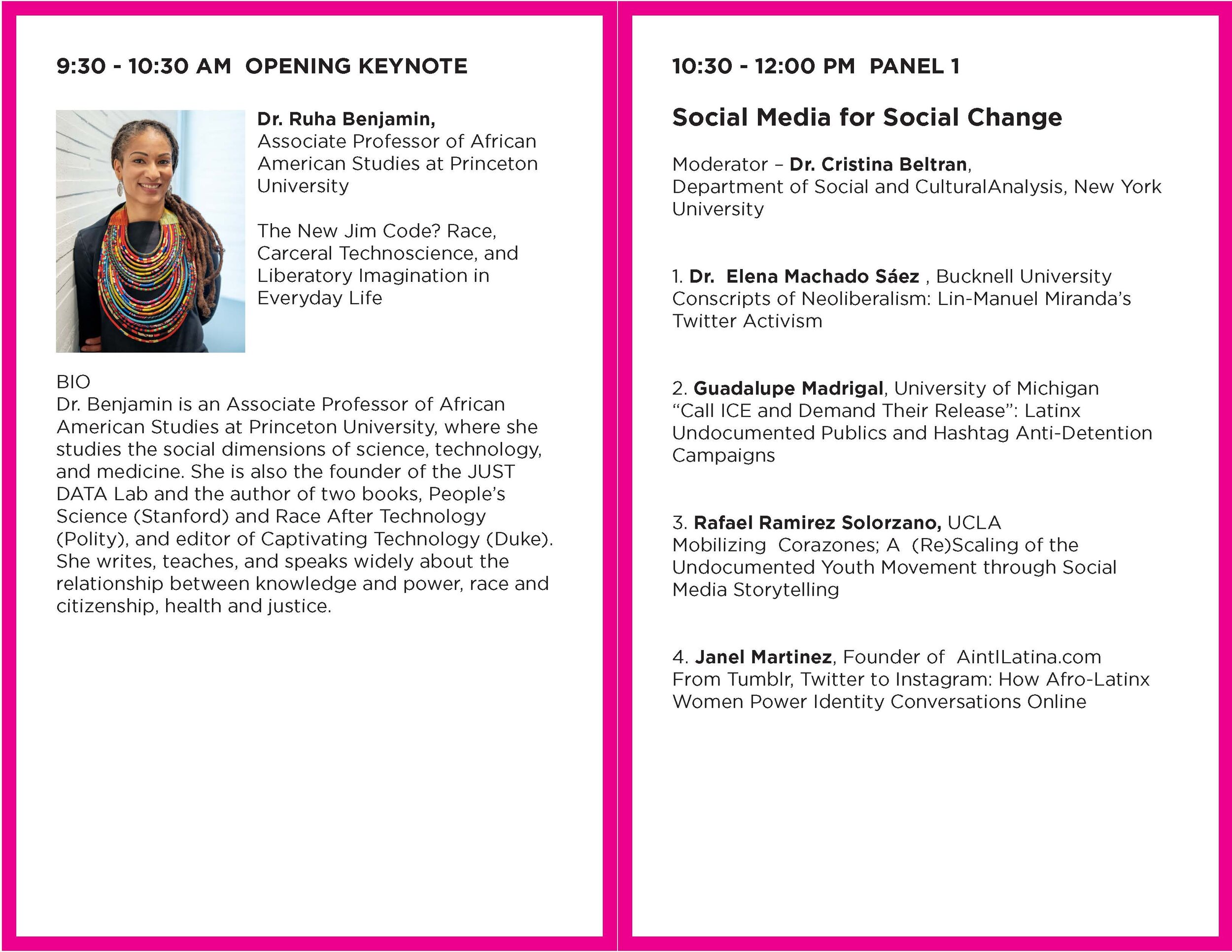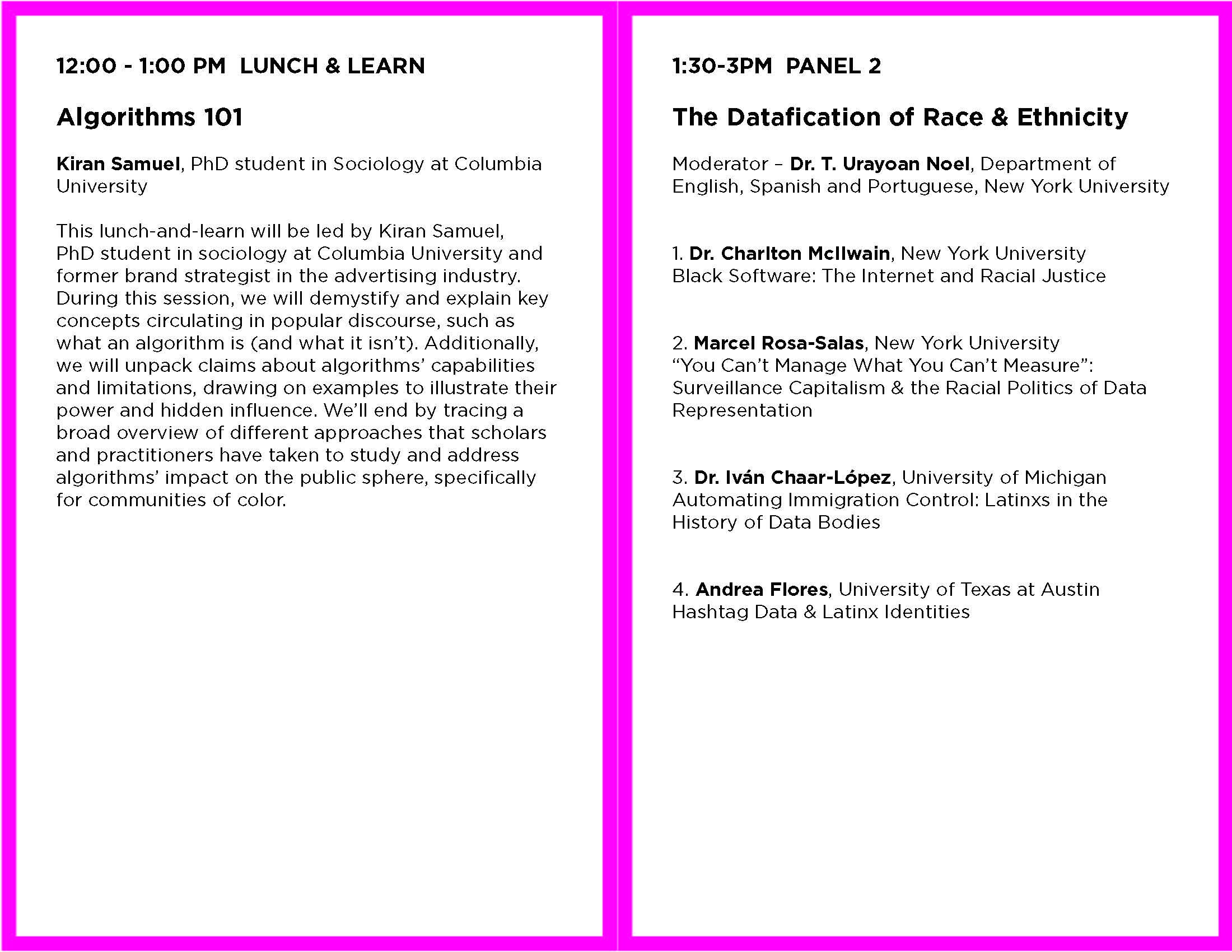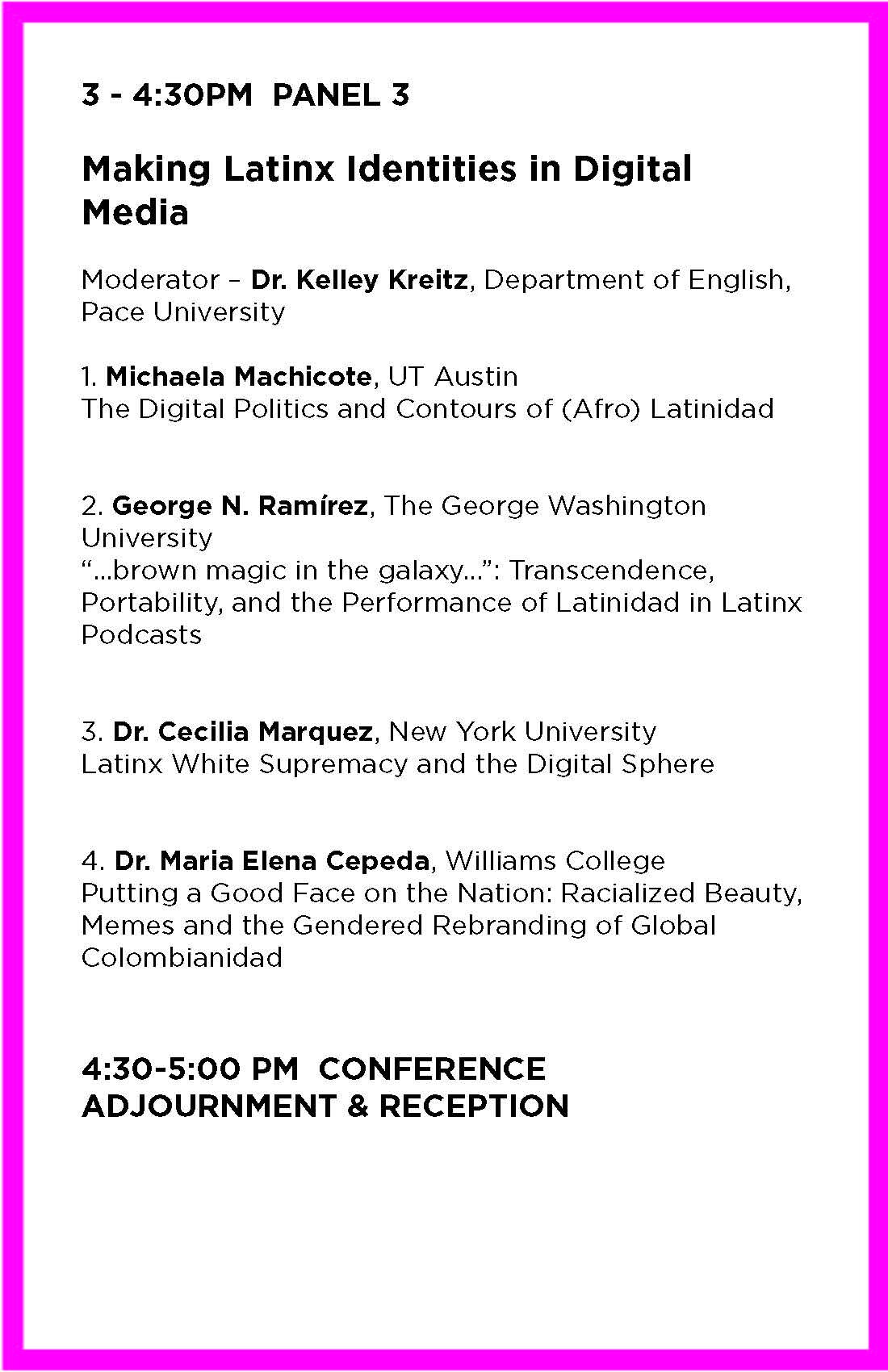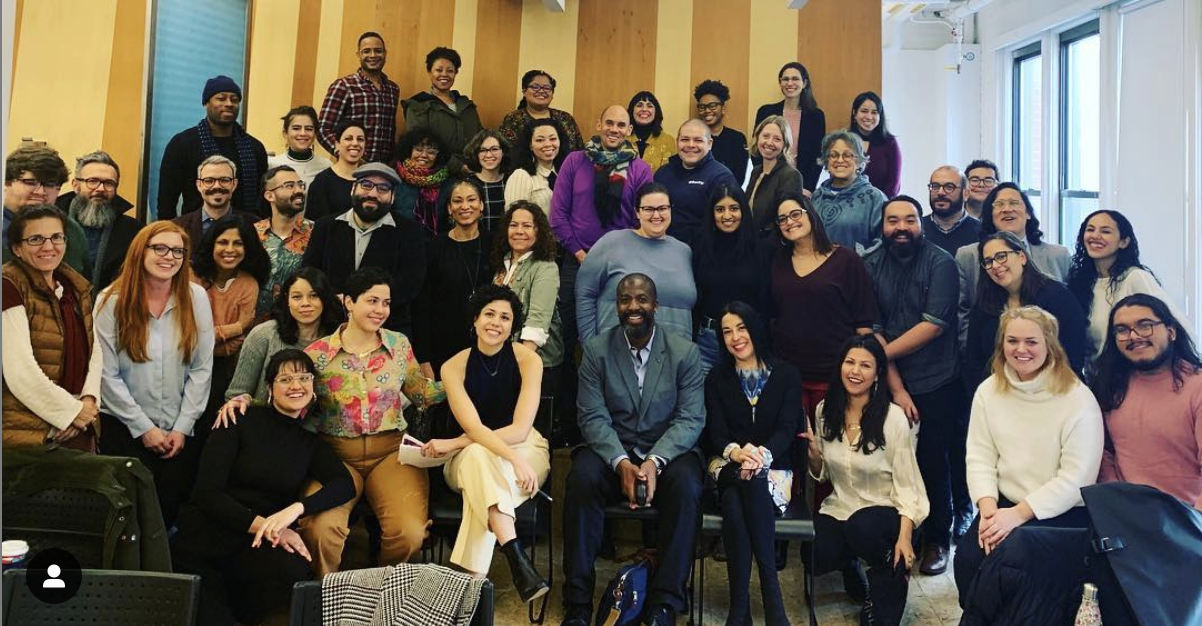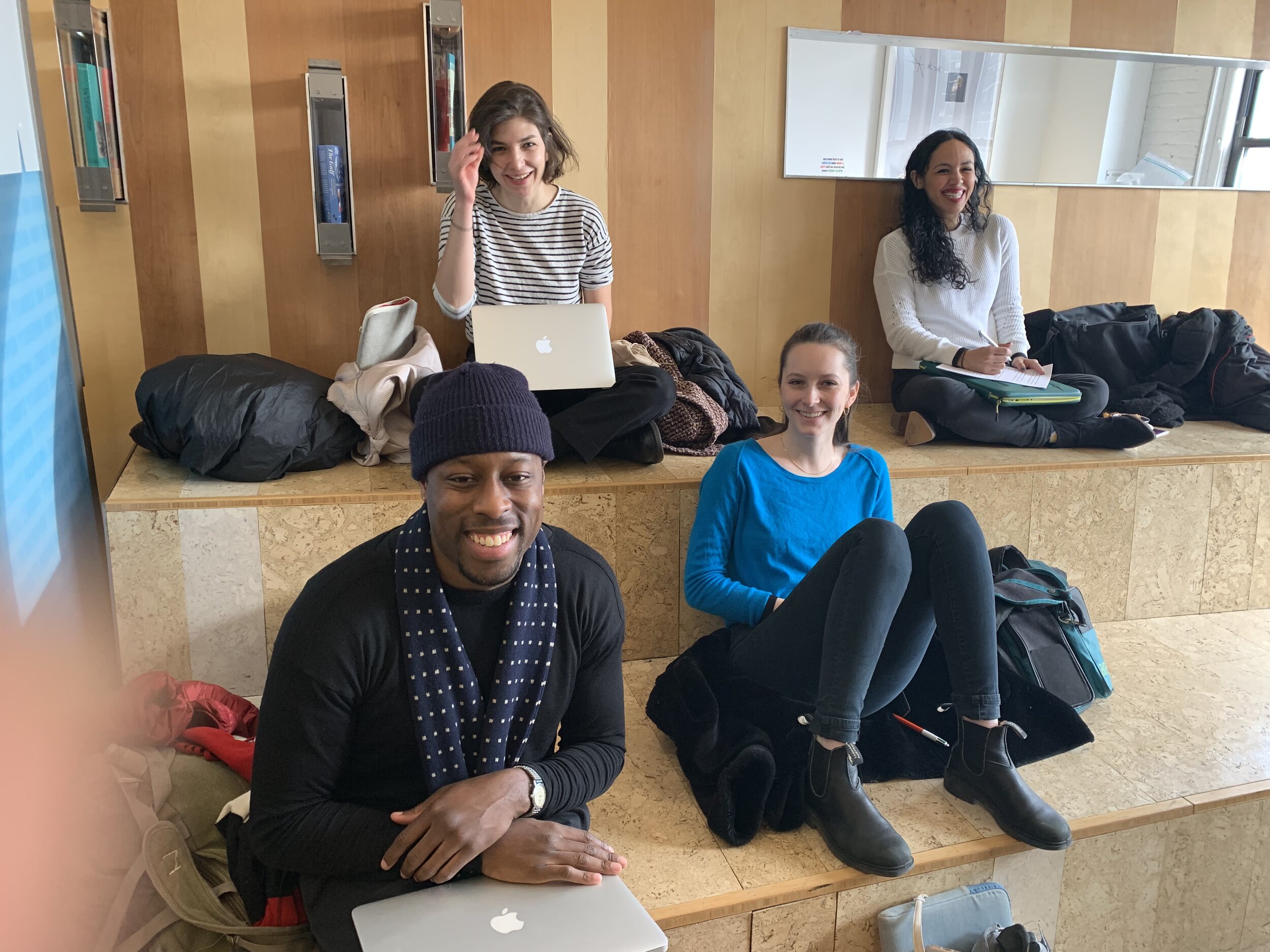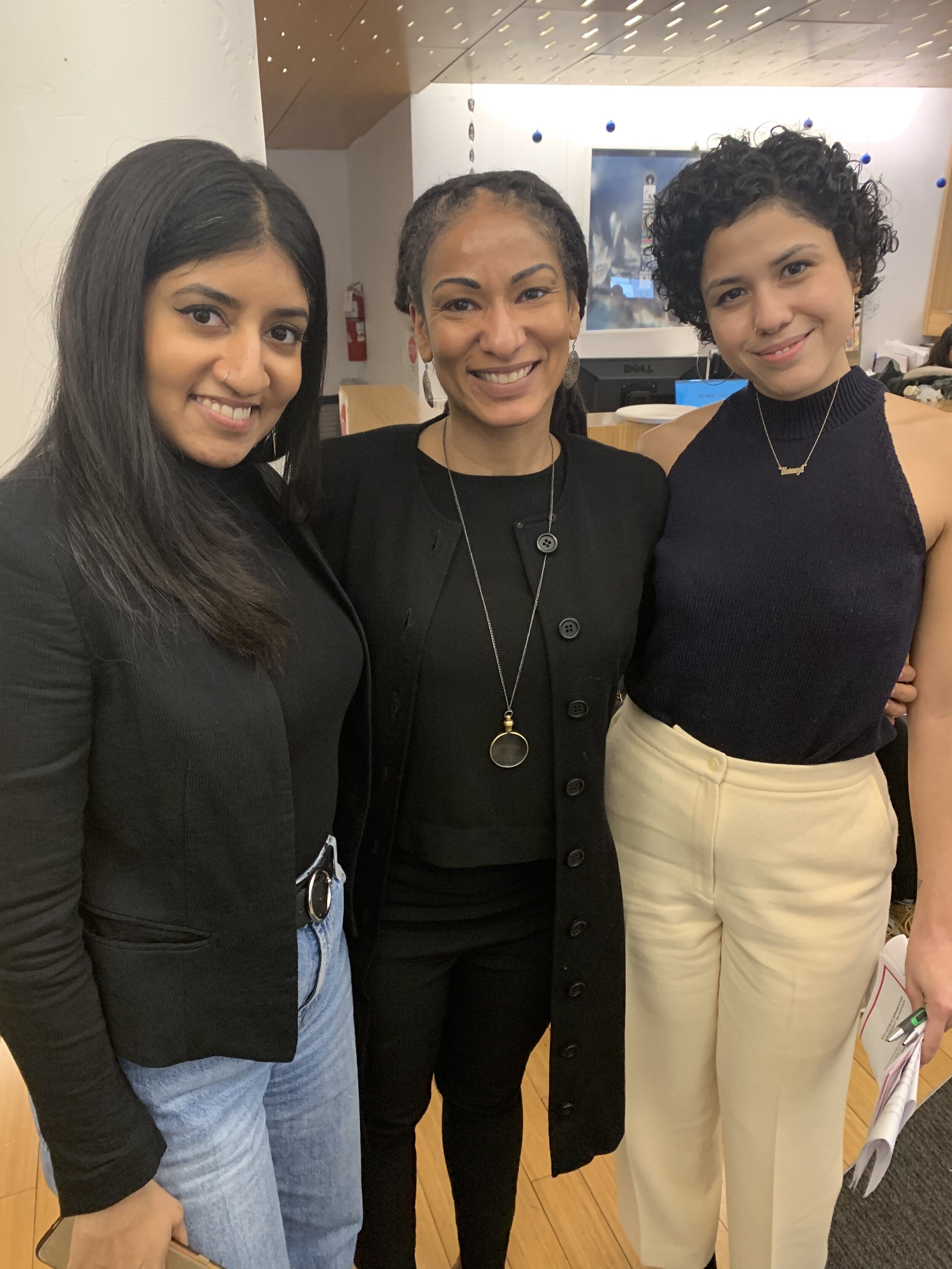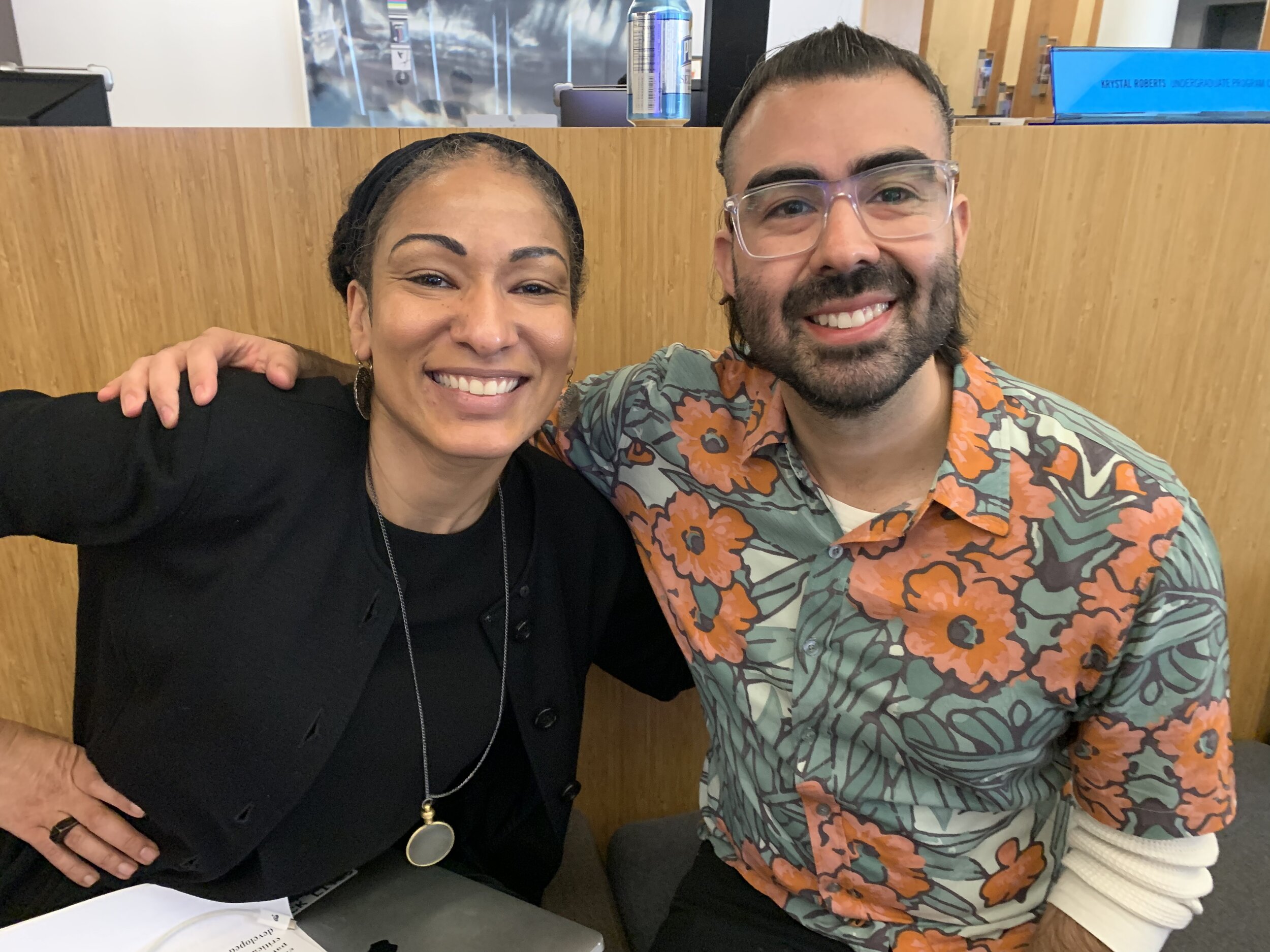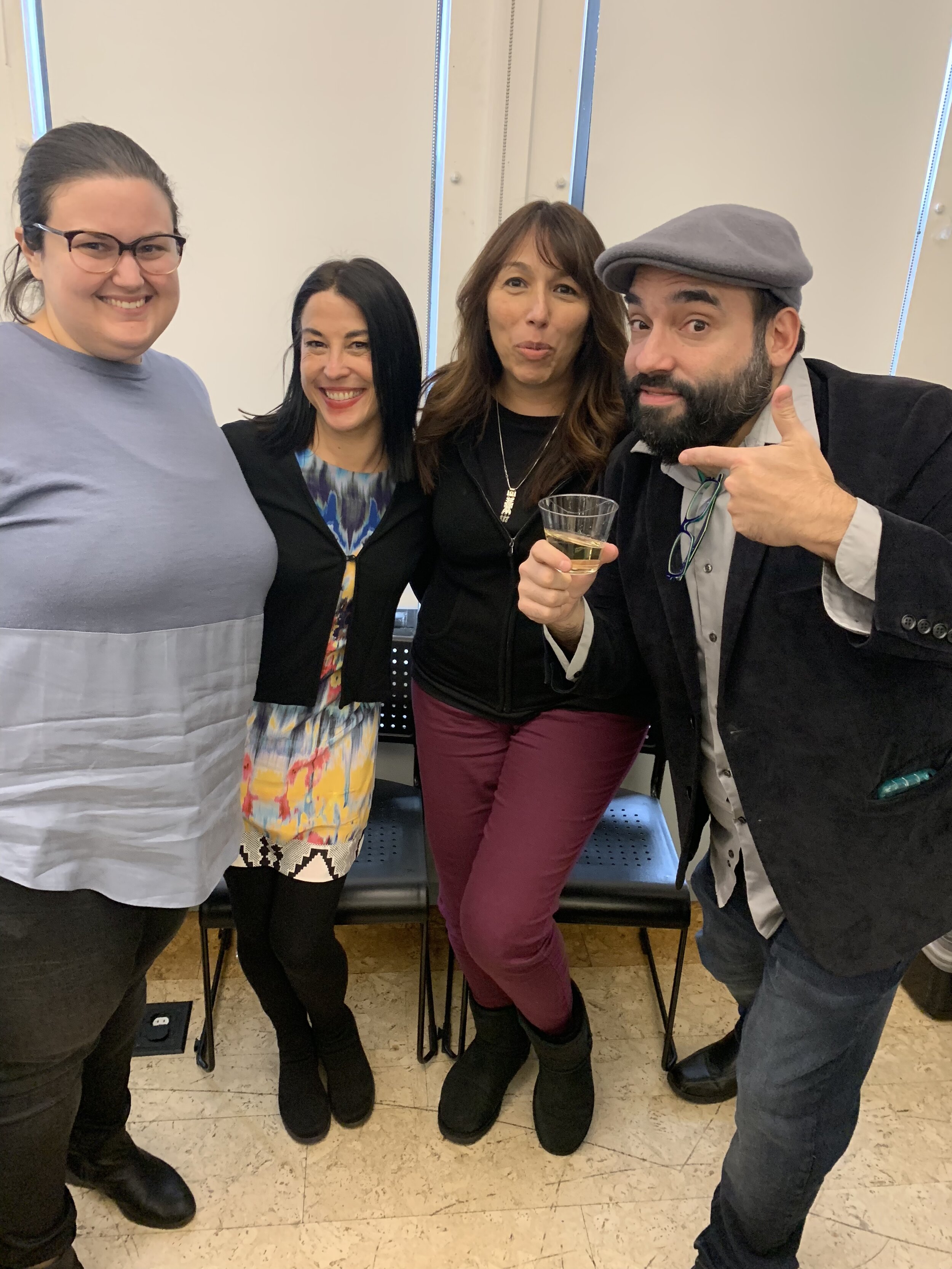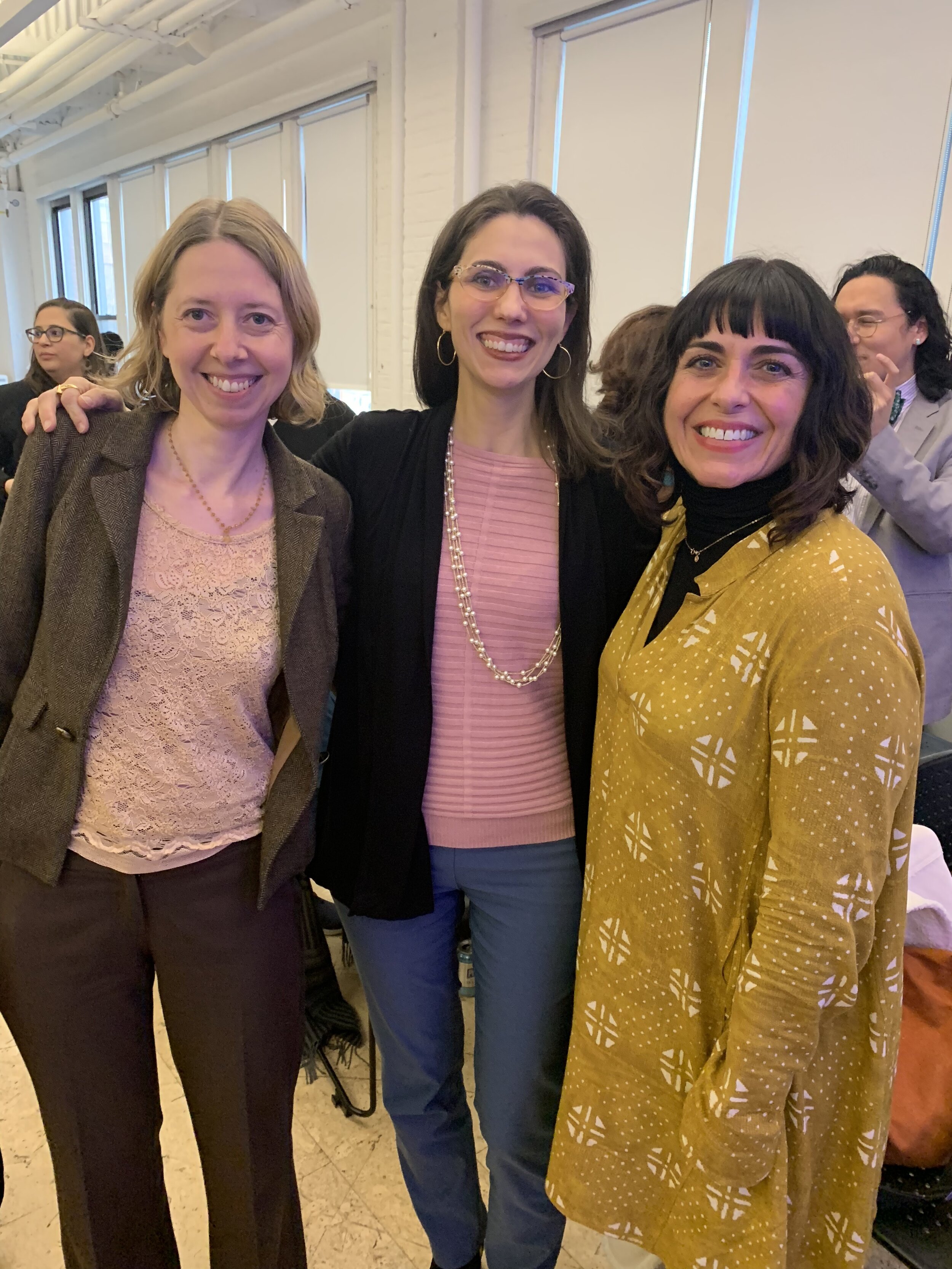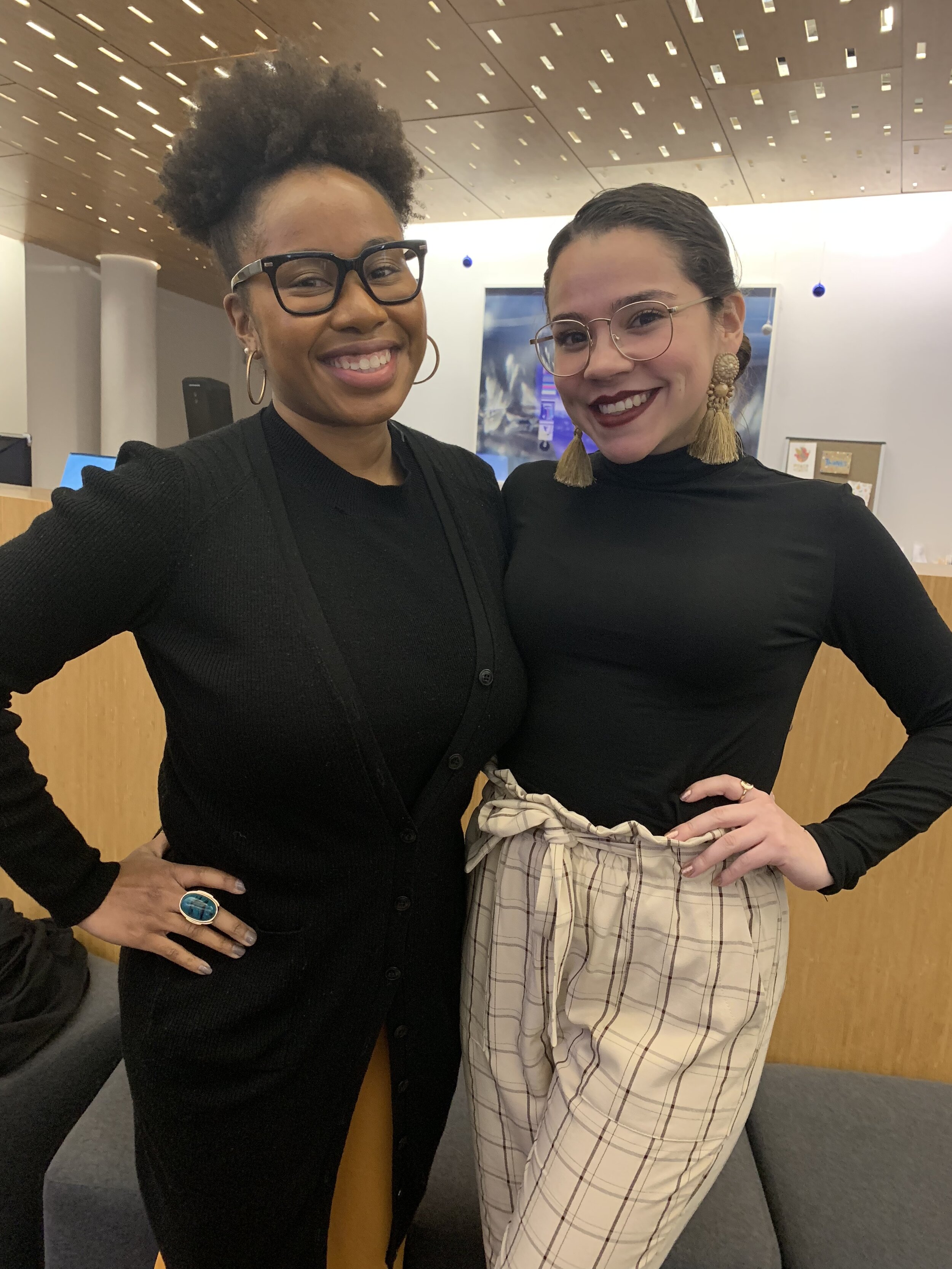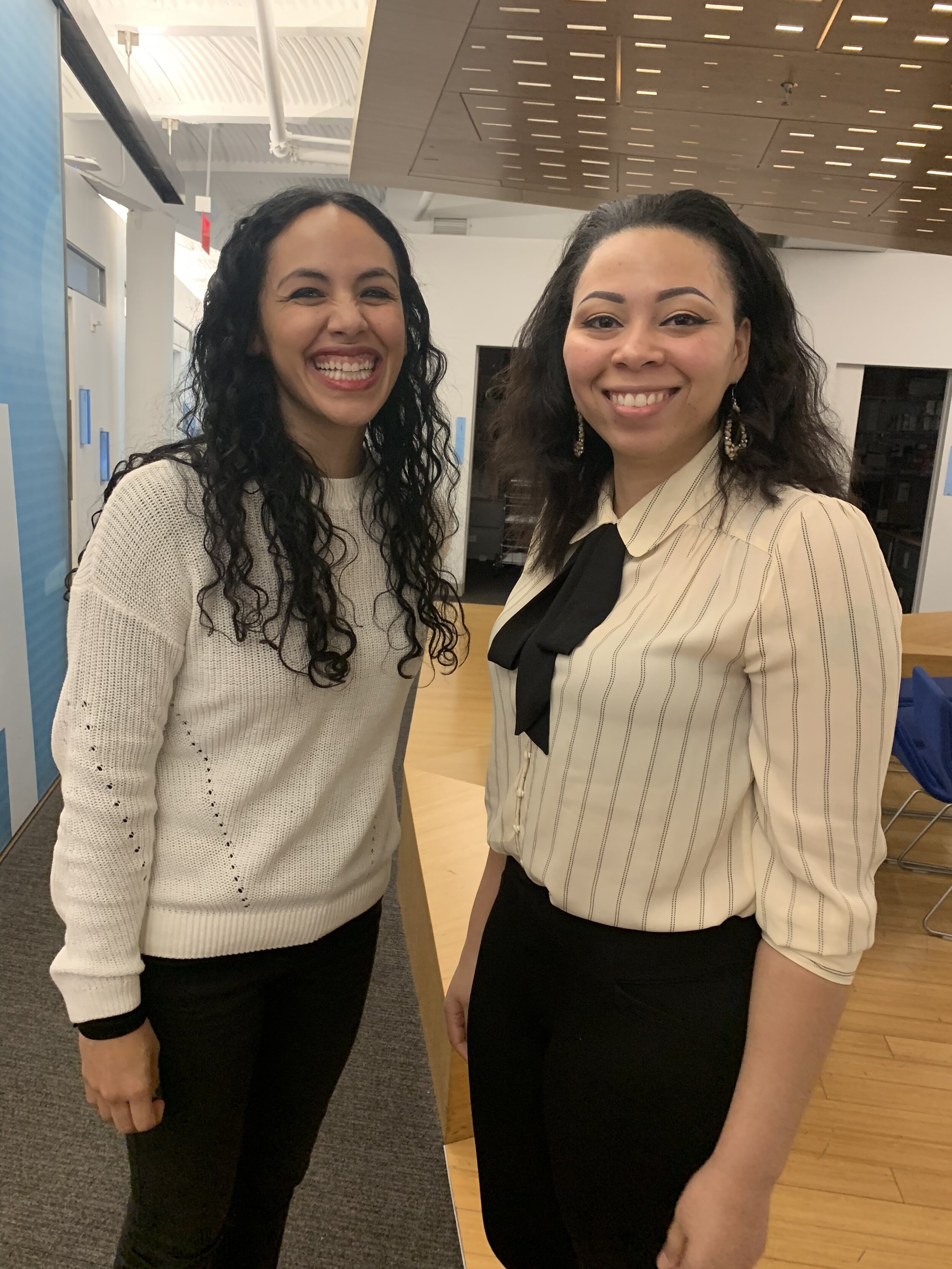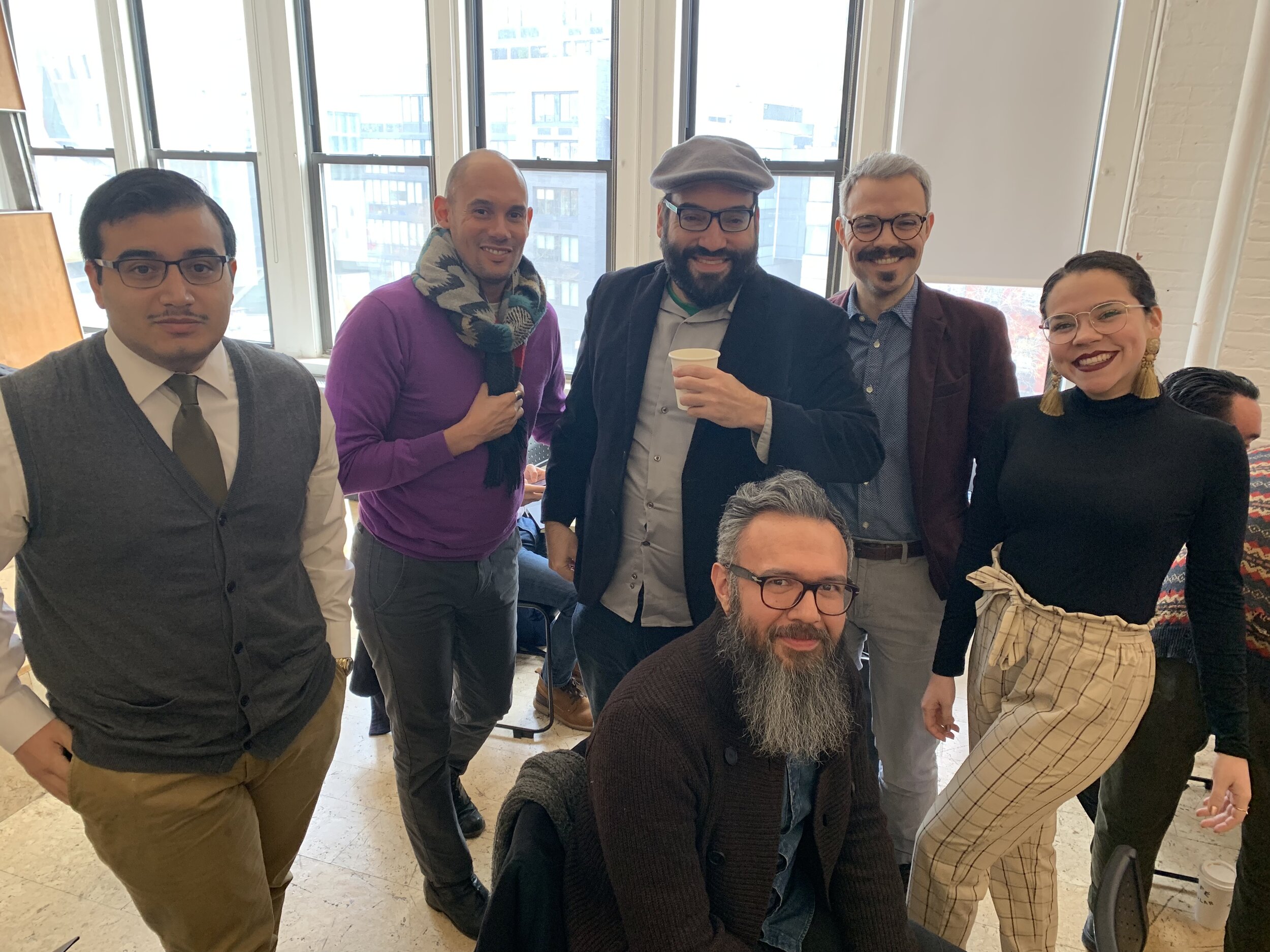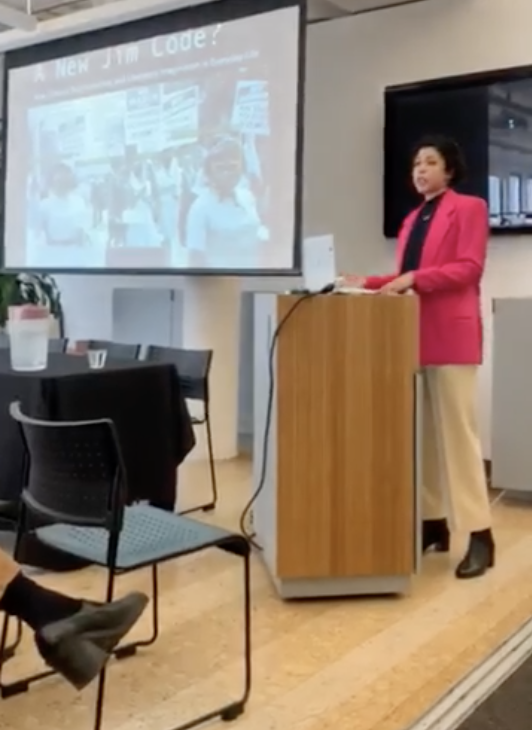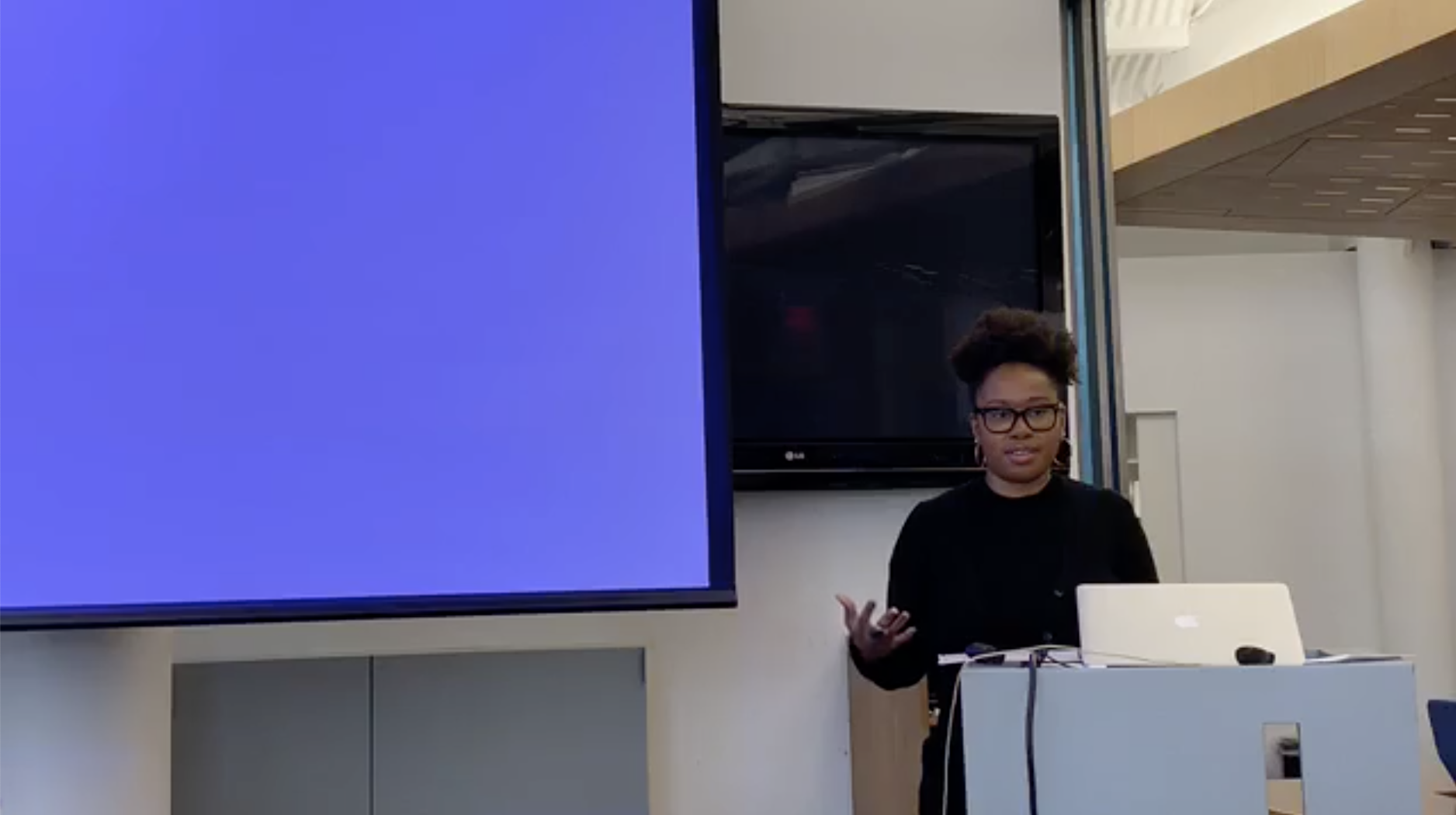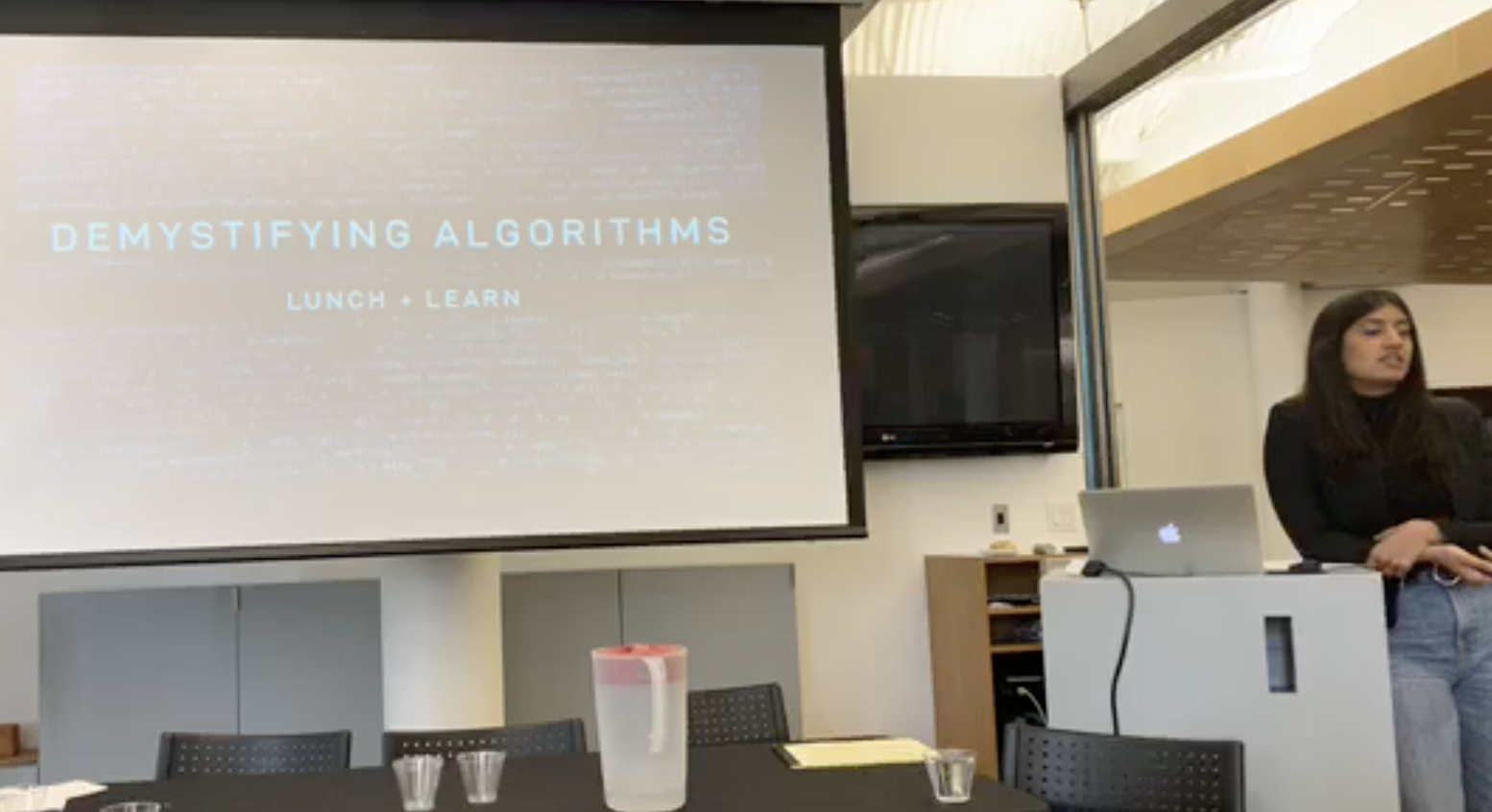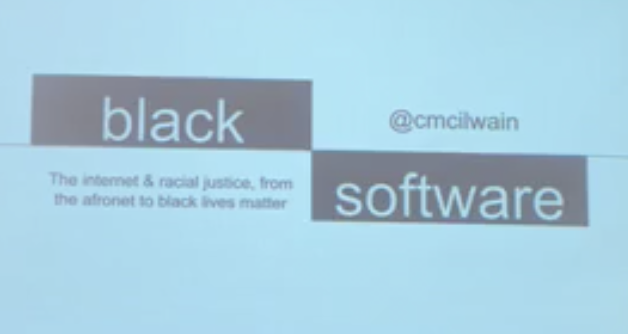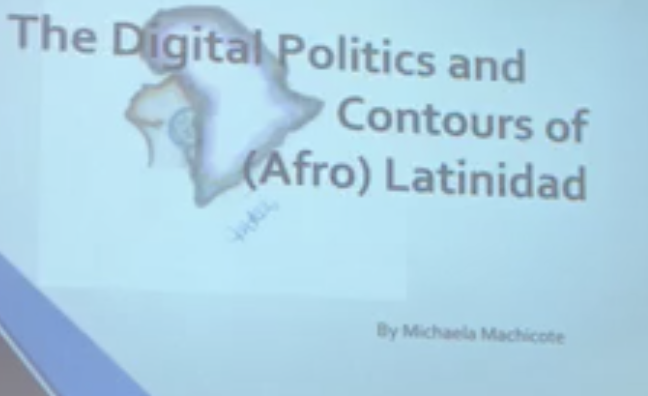Latinx have long been subject to misrepresentation and objectification in the media. What is happening in the digital realm? This one-day symposium explores the issues at play when they are turned into data, and what could be learned about contemporary racism by examining these processes.
We were especially interested in the technological mechanisms that manufacture representation; efforts to galvanize the tech industry’s various stakeholders towards creating more socially responsible apps and machine learning tools; and exploring how digital workers and activists are using digital technology to empower communities.
This event was open to the public.
Program
Participants
Graduate student Marcel Salas, Professors Cecilia Marquez, Cristina Beltrán, Urayoán Noel, media practitioners, among others.
Keynotes
Héctor Beltrán, Assistant Professor at MIT, author of the forthcoming Hacking Imaginaries: Full-Stack Ethnography Across the Techno-Borderlands; and Ruha Benjamin, Associate Professor of African American Studies, Princeton University, and author of the forthcoming book, Race After Technology.
Event Recap
The TLP Digitizing Race Conference last week was a huge success with scholars coming from UPenn, Cornell, UMichigan, Princeton, MIT, George WashingtonU, UCLA, Norte Dame, Arizona, Puerto Rico, UT Austin, Bucknell, Williams College, and Pace University! The panels were informative and helped make so many connections within the field of critical digital studies.
Our first keynote was Héctor Beltrán, Assistant Professor at MIT, author of the forthcoming Hacking Imaginaries: Full-Stack Ethnography Across the Techno-Borderlands, who offered us a few takeaways with his presentation. They came in the form of policy recommendations from a policy brief titled Latina/os and Tech: Toward a Holistic Approach for Diversifying Silicon Valley, a result of research and a conference held as part of the Latinxs and Tech Initiative. Listed below are five of the recommendations
The political economy that undergirds issues of transnationalism, hybrid identities, and coalition-building are discussed and analyzed thoroughly in relevant humanities and social science courses. Prioritize these courses as part of STEM curriculum.
The onus should not be on talented young people to have to decide between their communities and their “success.” Tech companies should provide the time and resources for employees, especially people of color with “insider’s knowledge,” to connect with community leaders in order to help develop these crucial programs.
Protect spaces for people from underrepresented groups to gather and support each other. Provide opportunities for these different groups to spend time with each other, learn from one another, and strategize together to build better/ alternative futures. Encourage members of overrepresented groups to join these dialogues, if they are willing to let others lead.
Listen and learn from leaders already doing the work of diversity in related movements, who aren’t always specifically in tech or in your field. We need computer science students who read broadly across social science and humanities to unpack institutional racism, just like we need our humanities majors to take computation courses in order to unpack coding logic.
Whether an empowered coder superhero or an empowered blue-collar worker, the coding hero/worker, along with all Silicon Valley workers (“direct” and in supporting roles) deserves a living wage.
Our second keynote who jumpstarted the full day of presentations was brilliant scholar Ruha Benjamin, Associate Professor of African American Studies at Princeton University, and her presentation was ‘The New Jim Code? Race, Carceral Technoscience, and Liberatory Imagination in Everyday Life.’ Her question asked was, “How are novel technologies deployed in carceral approaches to governing life well beyond the domain of policing? But also, to what end do we imagine? How can the transformation of our political, cultural and social norms work towards collective forms of freedom? And how might technoscience be appropriated and reimagined for more liberatory ends?”
She continued to say, “The task as I see it is not only to resist discriminatory design to the extent possible but to work with others to imagine and create alternatives to the socio-techno quo, as part of a larger struggle to materialize collective freedoms and flourishing.”
Books Referenced by Ruha Benjamin
Race After the Internet Edited by Lisa Nakamura and Peter Chow-White
TechniColor, Race Technology and Everyday Life Edited by Alondra Nelson, Thuy Linh Nguyen Tu, Alicia Headlam Hines
Cyber Racism White Supremacy Online and the New Attack on Civil Rights by Jesse Daniels
Dark Matters: On the Surveillance of Blackness by Simone Browne
Digital Diaspora: A Race for Cyberspace by Anna Everett
The Social Life of DNA by Alondra Nelson
Cybertypes by Lisa Nakamura
Algorithms of Oppression by Safiya Umoja Noble


